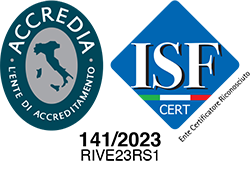NOVEMBER 5th-6th-7th, 2025
Pordenone Exhibition Centre
NOVEMBER 5th-6th-7th, 2025
Pordenone Exhibition Centre

The management of vineyard insects in recent years has been strongly influenced by the effects of climate change and the reduction in the availability of insecticides following the European review process. In this context, the key" pests, such as moths, have been accompanied by parasites that have until now been classified as "minor" such as Planococcus ficus, which in some cases are creating problems for winemakers in various Italian regions. It is therefore essential to recognize the insect early in the field, to know its biological cycle and the influences induced by the climate to set a correct management strategy.
Interventions:
Davide Bianchi, University of Milano
By: Informatore Agrario
By invitation
By: Arpa speciali
GrapePRODIGI – Supporting winemakers with digital instruments in order to help them develop their approach for precision agriculture.
By: CET Electronics and Padova University
Interventions:
The Strategic Plan and the Rural Development Complement - Gabriele Iacolettig, Central Directorate for Agri-food, Forestry and Fisheries Resources
The new regional paying agency for agricultural aid for Friuli Venezia Giulia - Karen Miniutti, Regional Paying Agency – ERSA
Rural Development SRD01 - Agricultural productive investments for the competitiveness of agricultural companies - Sonia Venerus, Central Directorate of Agri-food, Forestry and Fisheries Resources
Rural Development SRD02 - Agricultural productive investments for the environment, climate and animal welfare - Sonia Venerus, Central Directorate of Agri-food, Forestry and Fisheries Resources
By: REGIONE FRIULI VENEZIA GIULIA - ERSA
In recent years, the demand for more sustainable production that pays attention to residues has steadily increased in viticulture. It is with this in mind that Koppert has developed natural defense solutions based on the use of useful organisms. The protocols presented here include control of cottony scale insects, shield scale insects, harmful mites, Lobesia botrana and Scaphoideus titanus.
Intervention:
Francesco Bourlot, Product Development Manager, Agronomist Extenda Vitis
By: Koppert
By: Informatore Agrario
By: REGIONE FRIULI VENEZIA GIULIA - ERSA
By: Circolo Agrario
Interventions:
Michele Vimini, CEO by Howden Assiteca Agricoltura
Jacopo Tacconi, Business Development Director by Howden Assiteca Agricoltura
By: Howden Assiteca Agricoltura
By: REGIONE FRIULI VENEZIA GIULIA - ERSA
By: REGIONE FRIULI VENEZIA GIULIA - ERSA
A cura di: REGIONE FRIULI VENEZIA GIULIA - ERSA
Interventions:
Flavescence Dorée: a harvest made of history, research and ways to fight it - Elisa Angelini, CREA
Natural Wine and naturality of wine - Attilio Scienza
By: Diachem
Wine tasting
Interventions:
Carlos Santos, AD Amorim Cork
Rossana Bettini, Journalist and writer
Roberto Papetti, Director Gazzettino Newspaper
Giuseppe Faggiotto, Owner Peratoner
Rosa Prisciandaro, Sommelier Donne del Vino FVG
By: Amorim Cork - In collaborazione con Cristiana Cirielli
By: Federacma - In collaboration with EsseCi
By: Informatore Agrario
By: Arpa Speciali

Moderator: Lorenzo Tosi, New Techniques
Interventions:
Irrigation water and hydraulic risk – Man or climate? - Giuseppe Corti, Director of CREA Agriculture and Environment
Water resources: interventions envisaged by the FESR of the Fvg Region - Gabriele Iacolettic, PSR Friuli Venezia Giulia Region
Water requirements of the vineyard - Giovanni Battista Tornielli, University of Verona
DRIVE LIFE: technology and agronomic management to support the resilience of the vineyard to water stress - Irene Diti, University of Piacenza
New rootstocks for sustainable agriculture - Eugenio Sartori, Vivai Cooperativi Rauscedo
Irrigation systems between technology and sustainability - Marco Sozzi, University of Padua
Controlled water deficit and quality of grapes and wines - Paolo Sivilotti, University of Udine
ANBI: the Reclamation Consortia for irrigation and the valorisation of water resources - Valter Colussi, President of the Cellina Meduna Consortium (ANBI)
By: Enotrend of the RIVE Scientific Committee
By: Rovensa Next
By: Agrilaete
By: BEA
Interventions:
Diachem protects crops with more than 70 years of experience - Milena Crotti, Communications Manager
Spread of flavescence, experimental experiences - Vally Forte, CREA-Viticulture and Oenology Research Center
Meteor: strategies to contain vine flavescence dorée - Giovanni Piubello, Field Marketing Specialist North East
By: Diachem
The use of grass cover represents a method of soil management most commonly used in wine-growing areas characterized by high water availability, while in Mediterranean areas characterized by reduced water availability which manifests itself particularly in the summer months, the benefits provided by grass cover to the vine must be weighed also considering the possible negative effects due to competition for resources. The possibility of managing the soil in a dynamic and differentiated way with breaking and mowing based on the climatic conditions and the floristic composition of the grass cover allows competition to be limited, homogenizing production and ripening of the grapes within the vineyard.
By: Informatore Agrario
By: HAIFA

Moderator: Giannantonio Armentano, L'Informatore Agricolo
Interventions:
The 2023 season, lights and shadows of a difficult year for viticulture - Tito Caffi, University of Piacenza
The frontiers of automation and robotization in viticulture: opportunities, expectations and barriers in the sector - Fabrizio Mazzetto, University of Bolzano
Precision viticulture: a tool for the agronomic management of vineyards - Luca Toninato, Ager
Alternative strategies and products for anti-downy mildew defense - Ilaria Pertot, University of Trento
Vine protection: the revolutionary potential of dsRNA against pathogenic fungi - Gabriella De Lorenzis, University of Milan
New challenges in the defense against insects between old knowledge and alien organisms - Nicola Mori, University of Verona
Resistant and resilient varieties - Raffaele Testolin, University of Udine
The challenges of the Green Deal. Prospects for realistic options in the ecological transition - Andrea Povellato, Crea Economia Padua office
By: Enotrend of the RIVE Scientific Committee
Interventions:
How to make grapes speak - Matteo Bellotto and Francesco Degano Francesco, Colli Orientali
Resistence and resilience, from the nursery to the vineyard - Elisa De Luca and Yuri Zambon, Vivai Rauscedo
By: Diachem
By: SIPCAM
By: ASPIZ
Moderator:
Giannantonio Armentano, L'Informatore Agrario
Interventions:
How the national regulatory framework is changing: the new measures to combat flavescence dorée - Alessandro Fiori, Phytosanitary and chemical service, research, experimentation and technical assistance of ERSA
Flavescenza dorata 2023: critical issues and management in Friuli Venezia Giulia and Veneto - Gianluca Gori, Pierbruno Mutton, ERSA Phytosanitary and Chemical Service, Research, Experimentation and Technical Assistance, and Sergio Carraro, Veneto Region Phytosanitary Service
Latest knowledge on the management of Scaphoideus titanus - Francesco Pavan, University of Udine
Recent findings on Flavescenza dorata and possible perspectives - Elisa Angelini, CREA-VE Conegliano
Debate and conclusions
By: REGIONE FRIULI VENEZIA GIULIA - ERSA
By Bcc Pordenonese e Monsile
By: Informatore Agrario
By: TIMAC AGRO Italia
By: REGIONE FRIULI VENEZIA GIULIA - ERSA
By: Zamarian
By: Rosa Prisciandaro
By: REGIONE FRIULI VENEZIA GIULIA - ERSA
Varietal resistance to downy mildew and powdery mildew in the vineyard represents an essential contribution to sustainability with a view to reducing the input of phytosanitary products and is, at this moment, the most mature" technology available on the market for the winemaker. To prevent this resource is not rapidly lost due to the appearance of pathogen variants capable of overcoming resistance some treatments positioned in the moments of maximum infectious pressure and supported by constant monitoring remain essential. Furthermore secondary pathogens such as excoriosis, anthracnose and black rot must be managed, which can emerge with a certain gravity in case of absence of treatments.
Intervention: Giovanni Pascarella, ExtendaVitis
By: Informatore Agrario
By: REGIONE FRIULI VENEZIA GIULIA - ERSA
By: REGIONE FRIULI VENEZIA GIULIA - ERSA
By: REGIONE FRIULI VENEZIA GIULIA - ERSA
By: REGIONE FRIULI VENEZIA GIULIA - ERSA
By: Rosa Prisciandaro

















































